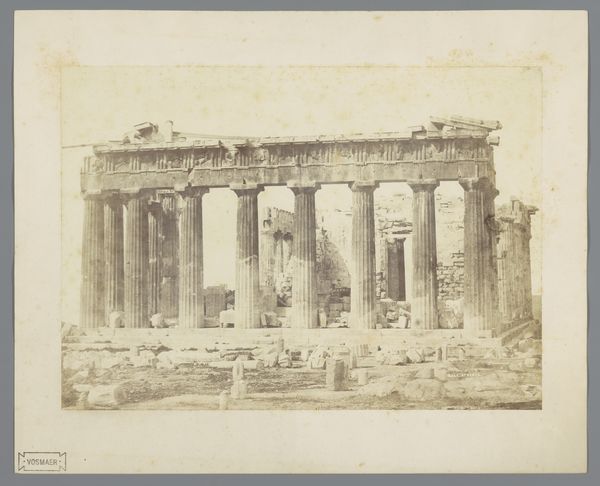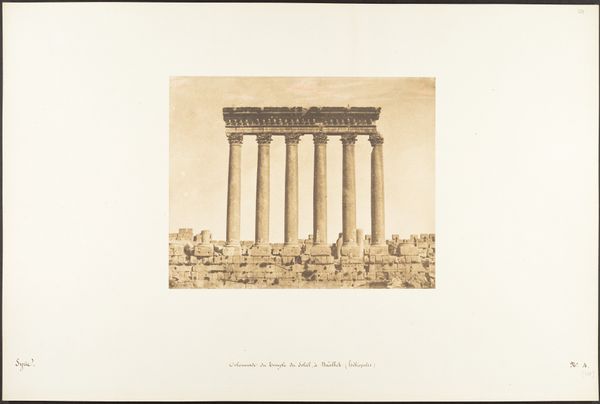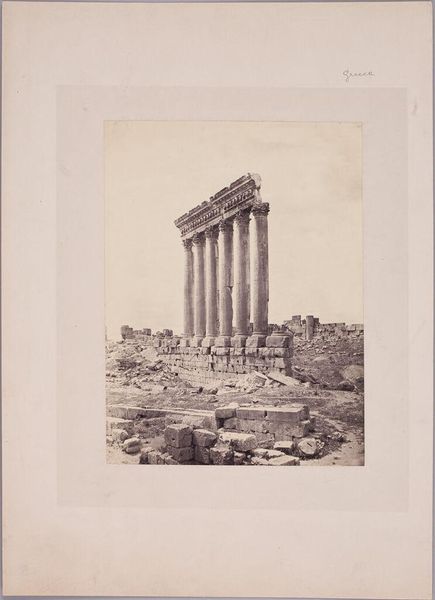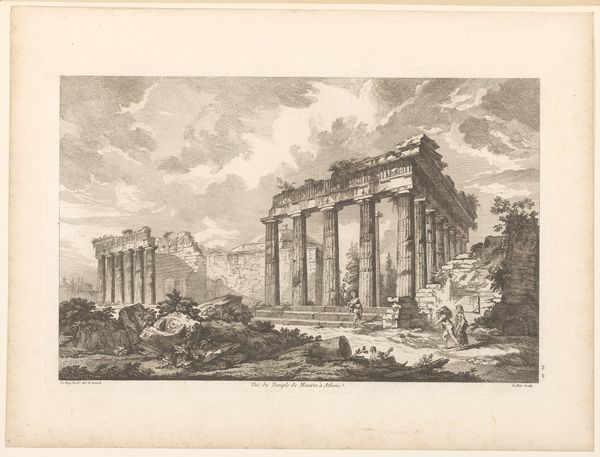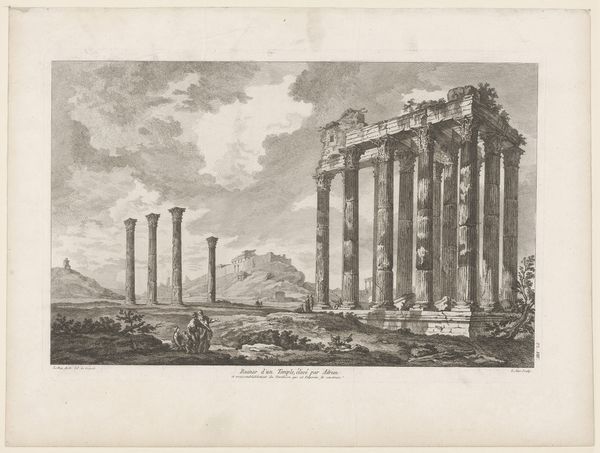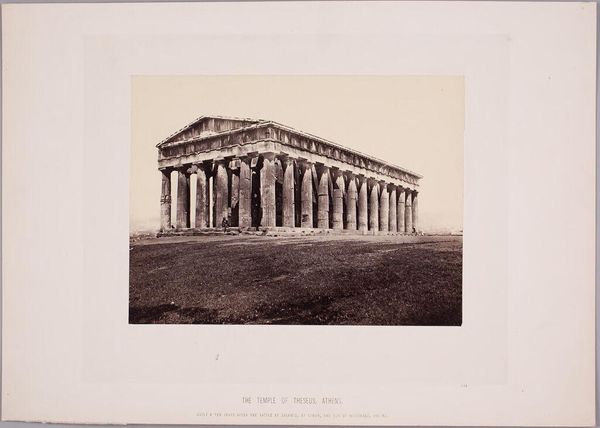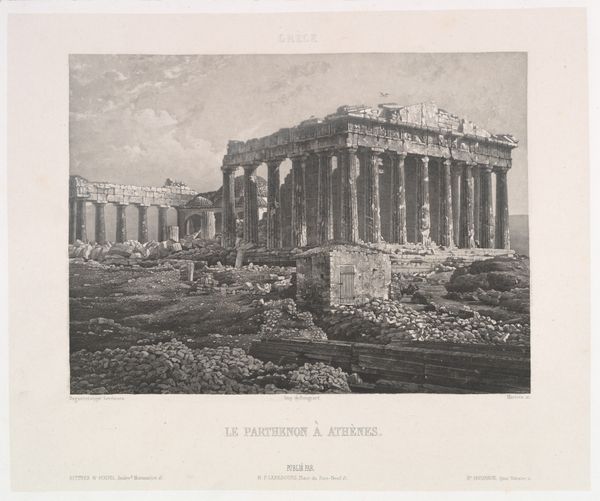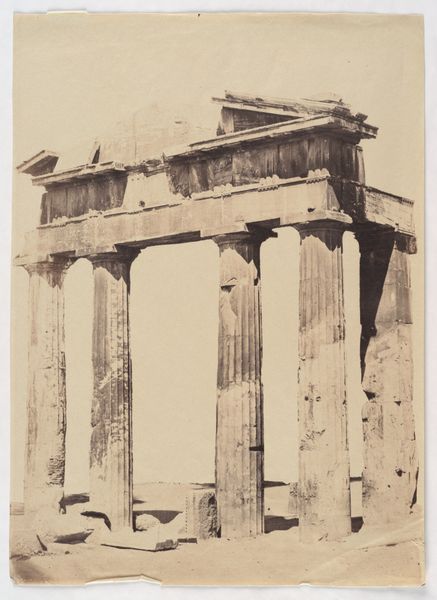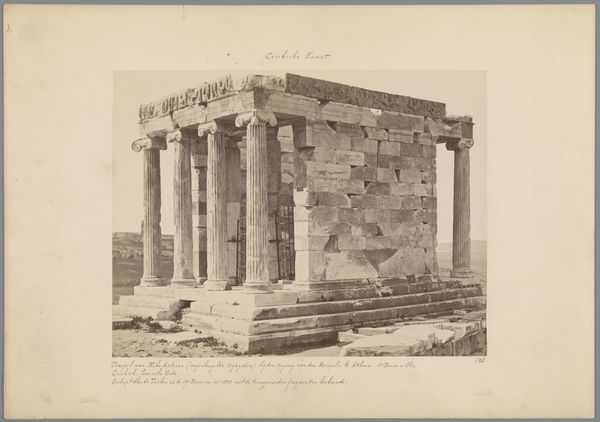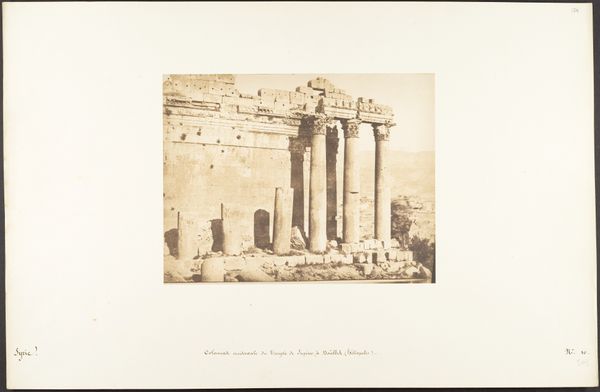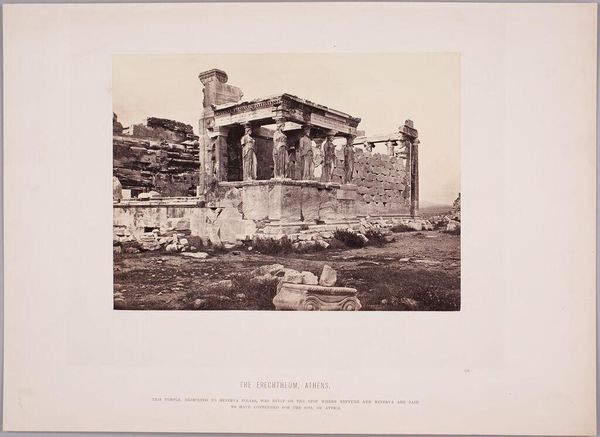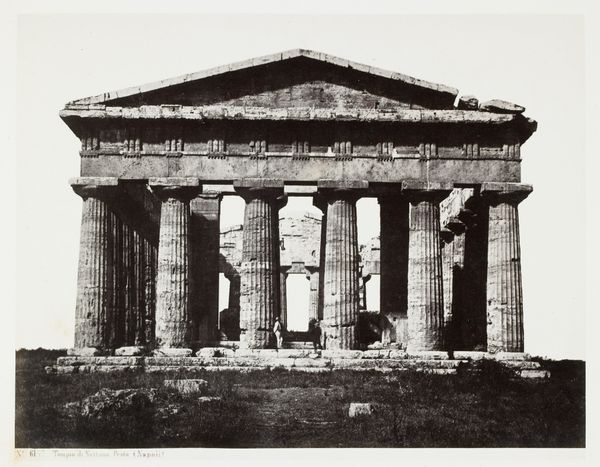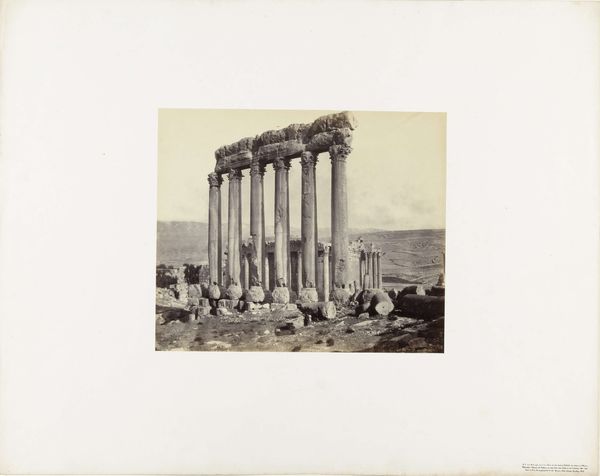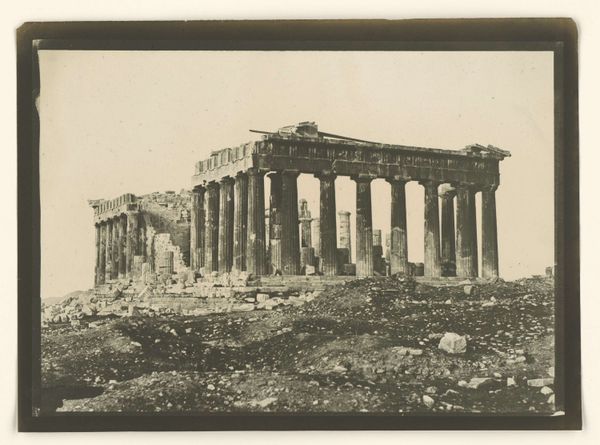
print, photography, engraving, architecture
# print
#
greek-and-roman-art
#
landscape
#
photography
#
ancient-mediterranean
#
engraving
#
architecture
#
realism
Dimensions: height 228 mm, width 326 mm, height 356 mm, width 523 mm
Copyright: Rijks Museum: Open Domain
This photograph of the Parthenon on the Acropolis in Athens, was taken by Eugène Piot sometime in the 19th century. The image before us is not the Parthenon itself, of course, but a paper print rendered with ink. The laborious processes of photography, especially at this time, involved skilled handwork and the use of darkroom techniques to produce a final print. The Parthenon was originally constructed from marble, a material chosen for its perceived purity and aesthetic qualities. The meticulous carving and placement of each block required engineering, and the coordination of labor on a massive scale. Piot’s photograph captures the Parthenon in its state of ruin, a far cry from the intentions of its creators. His print reminds us of the complex relationship between time, labor, materials, and cultural legacy. It prompts us to consider how the meaning of an object or artwork is inseparable from its making and its social context.
Comments
No comments
Be the first to comment and join the conversation on the ultimate creative platform.
